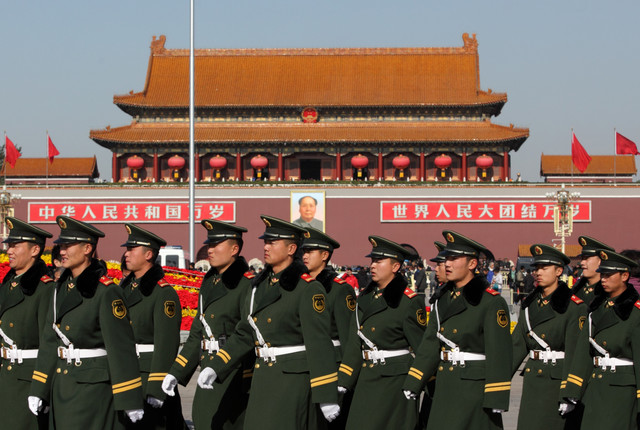JSOC Drone Strike on al-Shabab in Somalia and the Underlying War Powers Issue
The Washington Post reports this morning that JSOC recently carried out a drone strike in Somalia, targeting two al-Shabab leaders. The piece emphasizes that the Administration has recently highlighted al-Shabab in public statements, warning that al-Shabab is growing increasingly focused on carrying out attacks outside Somalia, rather on the model of AQAP. Indeed, the piece notes that the two leader
Published by The Lawfare Institute
in Cooperation With

The Washington Post reports this morning that JSOC recently carried out a drone strike in Somalia, targeting two al-Shabab leaders. The piece emphasizes that the Administration has recently highlighted al-Shabab in public statements, warning that al-Shabab is growing increasingly focused on carrying out attacks outside Somalia, rather on the model of AQAP. Indeed, the piece notes that the two leaders targeted in this strike have been in direct contact with AQAP's Anwar al-Aulaqi, a figure associated specifically with operations targeting America.
Since domestic separation of powers is all the rage these days, it is interesting to consider this report from that perspective. The article does not contain any insights into whether the operation was conceptualized as being (i) justified under the 9/18/01 AUMF (on the theory that al-Shabab either is part-and-parcel of al Qaeda or is an "associated force" thereof), (ii) justified under Article II of the Constitution on the theory that al-Shabab poses a sufficient threat to U.S. lives so as to warrant the use of force in self-defense), (iii) justified under Article II on the Libya-style theory that the scale of U.S. engagement in Somalia simply does not rise to a level of intensity sufficient to implicate Congressional prerogatives under the Declare War clause, or (iv) some combination of the above.
I suspect the actual answer is that the Administration would rely on argument (i), and only if forced to do so would it fall back on some combination of (ii) and (iii). But it won't be forced to do so, at least not so long as our operations against al-Shabab don't involve holding al-Shabab members in military detention in a context triggering habeas review. I suppose Congress might get excited enough to try to pry out an answer, but there seems no appetite on the Hill for such an inquiry, however excited folks get about Libya (where the nexus with a threat to U.S. lives is missing, and hence it is more likely that Congress will object to the unilateral use of force).
Robert (Bobby) Chesney is the Dean of the University of Texas School of Law, where he also holds the James A. Baker III Chair in the Rule of Law and World Affairs at UT. He is known internationally for his scholarship relating both to cybersecurity and national security. He is a co-founder of Lawfare, the nation’s leading online source for analysis of national security legal issues, and he co-hosts the popular show The National Security Law Podcast.




.jpg?sfvrsn=8588c21_5)
